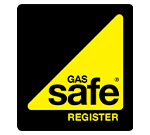With over 1,000 electrical incidents reported to the Health and Safety Executive every year, regular testing of electrical wiring and equipment is not just a legal requirement, but essential for your own safety and the safety of those who live in, work in or visit the building. Electrical safety is also vital for the continuity of your business.
How do I know when I need to check my electrical systems?
It is now law that a notice must be displayed at or near the origin of a building’s electrical installation that must state the required intervals between periodic inspections and tests. If your building does not have one, it is likely that you are overdue for a test.
Fixed wire testing
Buildings require an up-to-date Electrical Installation Condition Report (EICR) which is generally known as fixed wire testing (FWT). Most buildings need a new EICR every five years. Industrial buildings, theatres, cinemas need on every three years. Launderettes and filling stations need annual checks while construction site installations need checking every three months.
Wiring can deteriorate with age, wear and tear and rodent activity, so regular testing is needed to protect against the risk of fire and electric shock.
Styne Electrical undertakes fixed wire testing in accordance with BS7671. We test all electrical cables, switches, fittings, sockets, supplies to air conditioning and other fixed plant in a building. Any of the ‘four Ds’ – damage, deterioration, defects and dangers – will be identified and included in a comprehensive report that also includes an assessment of the building’s earthing, bonding and incoming electrical supply.
Portable appliance (PAT) testing
In the UK, around a quarter of all fires are caused by portable electrical appliances.
PAT testing covers anything that is plugged in to your building’s electricity supply and fixed appliances up to 400 volts. So, it includes computers and IT equipment like servers, photocopiers, fridges, freezers, and water coolers.
A regular PAT testing regime is not a legal requirement at the moment, but failure to carry out regular checks may invalidate your insurance cover as many insurers insist on regular inspection and testing in the small print of their policies.
Emergency lighting and fire alarm testing
Some form of emergency lighting is a legal requirement in all workplaces that have artificial lighting.
There are two types of emergency lighting specified in the Fire Precautions (Workplace) Regulations 1997 which state that: ’Emergency routes and exits must be indicated by signs and emergency routes and exits requiring illumination shall be provided with emergency lighting of adequate intensity in the case of failure of their normal lighting.’
Additionally, testing of fire alarms and emergency lighting are needed to comply with the Regulatory Reform (Fire Safety) Order 2005, Fire Alarm Standard BS 5839-1:2017 as well as to meet the Equality Act 2010 requirements specified in BS 8300.
Maintenance and repairs
Styne Electrical offer a complete maintenance and repair service and give the same high level of service to industrial, commercial and domestic customers alike.
Reactive Repairs
No one wants to be in the situation where you need urgent reactive repairs, and with regular testing and maintenance, it can be kept to a minimum.
But if a situation does arise where due to flooding or other unforeseen circumstances, you need an urgent call out, Styne Electrical’s team of highly skilled engineers offer a fast, efficient repair service that can get you back on your feet with a minimum of fuss.






















